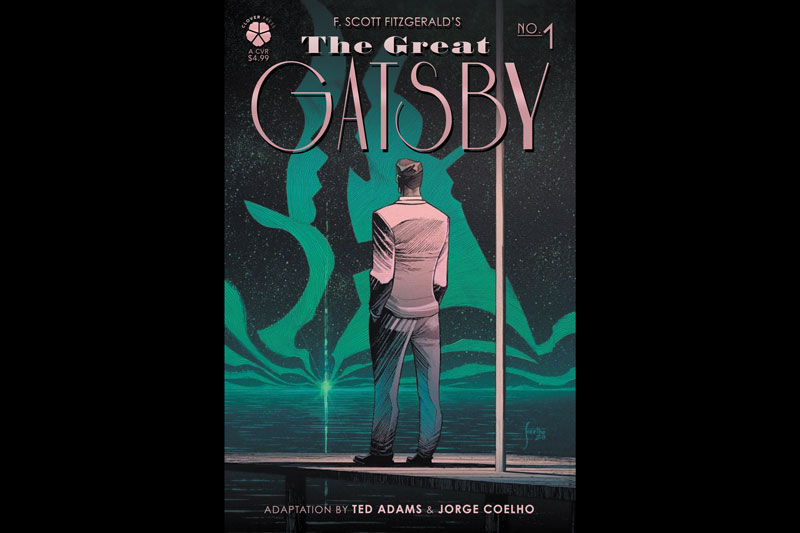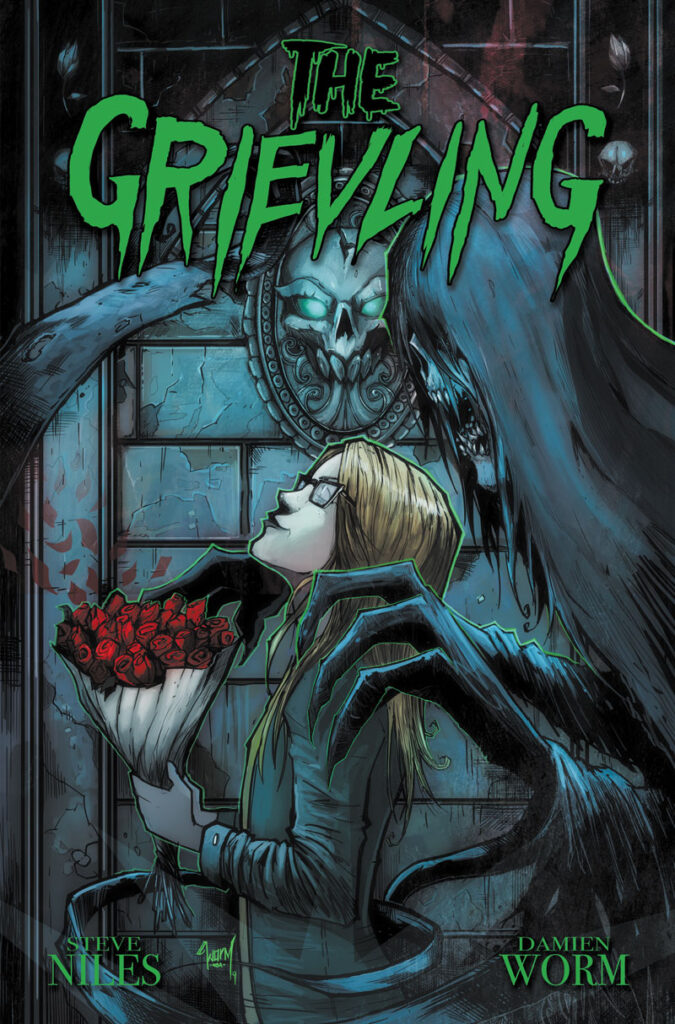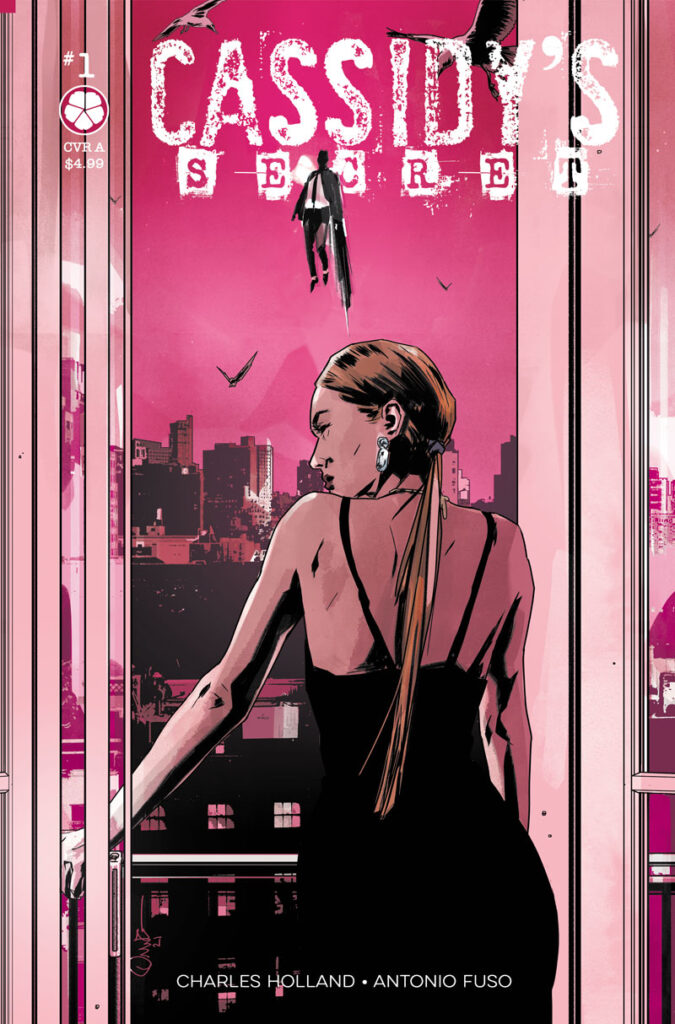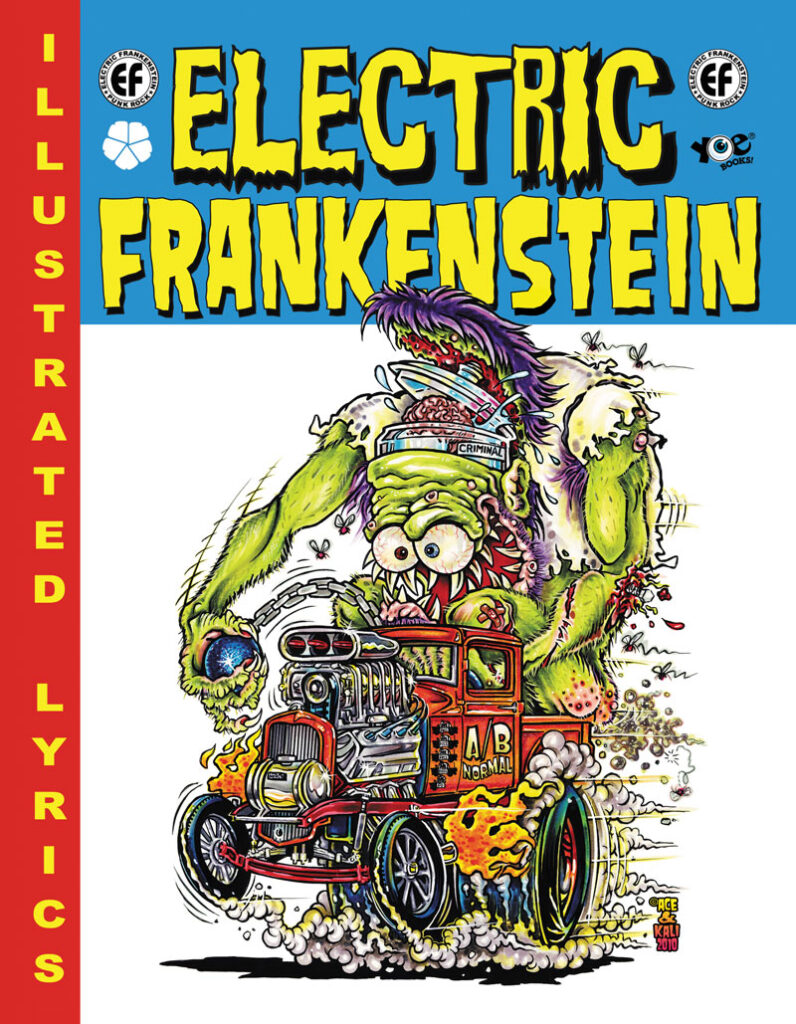
The journey of a comic book master
By Colleen McNatt
It’s fitting that Robbie Robbins’ life vocation is in comics.
As a pre-teen around the age of 10 or 11, he remembered poring over the “Richie Rich” comic book series. While other readers devoured the mainstream superhero comics, Robbins’ tastes veered to the independent storylines and art styles. Wednesdays were always his favorite days when a new comic book was released and he could visit the store.
“I like the smaller stories,” Robbins explained about his preference for the underdog in this hyper-competitive world of comic book design and publishing.
He especially enjoys nurturing talent and connecting readers and fans to independent authors through crowdfunding platforms like Kickstarter. This month, the punk band Electric Frankenstein’s lyrics will come to comic book life – all 352 pages – through designs by more than 100 artists due to this collaborative business model.
Now, more than two decades later, the former Scripps Ranch resident is experiencing a sort of homecoming. As the comic book craze exploded in America and even locally through Comic-Con, Robbins is returning to his childhood values with a focus on the stories and artists that speak in a new voice to readers and fans.
In the late 1990s, Robbins was a communications and film graduate from Sacramento State University and traveled down the coast with a girlfriend to experience the San Diego lifestyle of weather and waves. His girlfriend didn’t commit to San Diego, but Robbins persevered by working at a handful of jobs, including bartending, before landing a role as a classified advertising representative for a community newspaper.
“I was horrible,” Robbins remembered of his work duties in the classified ad department.
He recalled he couldn’t sell anything, and coworkers felt sorry for him and gave him credit for ad sales so he wouldn’t get fired.
The computers in the design department caught his eye and Robbins stayed after work each night to learn how to design ads. One year later, Robbins became the art director at the newspaper group.
After his stint with newspapers, Robbins’ self-taught success and initiative led him to WildStorm, a comic book publisher, where he accepted a role in the production department, working the unglamorous swing shift.
There, he studied the nuances of lettering, which Robbins explains is the balloons and text found on each page of comic books that showcase the dialogue of the story. In the late 1990s, lettering was created by hand and on the computer. Robbins excelled as an “inker” and was approached by three like-minded coworkers – Ted Adams, Alex Garner and Kris Oprisko – about joining forces to start their own comic book company.
The business pitch was in his colleague’s living room. The deal involved each member contributing a $15,000 investment with an equal 25 percent share in the company. Robbins admitted he didn’t have the full amount, but he cobbled together the funds and tossed in his menagerie of computers and design software, and the deal was launched.
Idea and Design Works, or IDW Publishing, was born on Robbins’ birthday in 1999. The homegrown San Diego company, once housed in a windowless closet space in Pacific Beach, is now a publicly traded powerhouse of comic books, graphic novels, art books and other entertainment media. Robbins left IDW to start the boutique comic book publishing house Clover Press with former IDW cofounder Adams in 2019. The timing of their first release collided with the same week of the COVID-19 shutdown in March 2020.
Compared to the volume of comic books released each month at IDW, often 40-60 books, Clover Press will issue only five, Robbins said. The “Great Gatsby #1” is set to release later this summer, offering comic book fans a new spin on the Roaring ’20s and introduce reluctant readers to a literary American classic. The broader comic book audience will continue to follow Marvel and DC and be entertained with the hugely successful movies, Robbins said. Clover Press will focus on the eclectic and independent projects with no intention to chase a larger release schedule.
“We’ve come full circle,” Robbins said of his return to creating new content and working with little-known stories and breakthrough comics.
For Robbins, that Wednesday feeling is back again.




